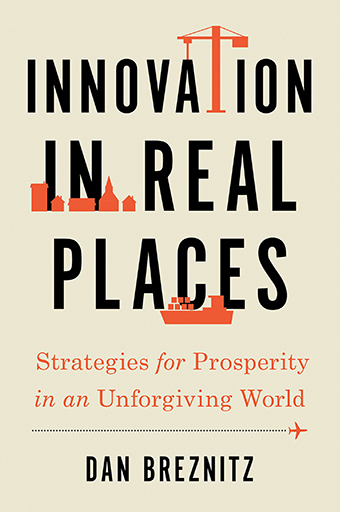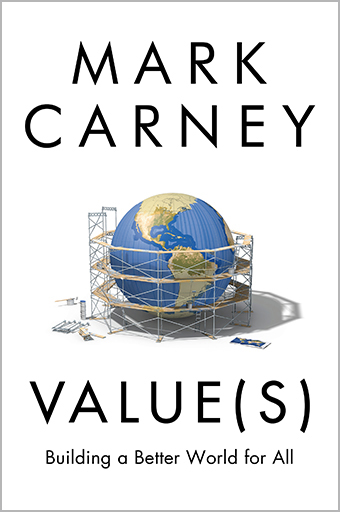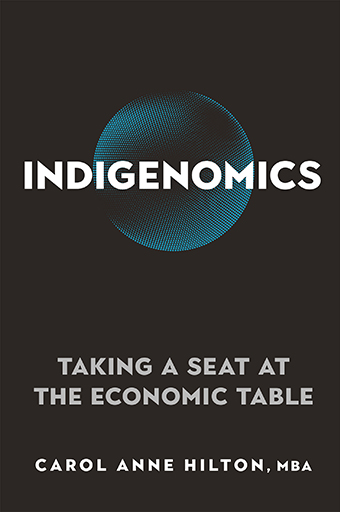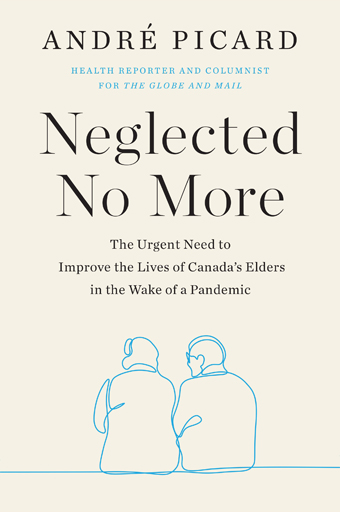Here’s a look back at past winners and the books that made that year’s shortlist. You’ll also find our Jury from each award season
2021 Winner
Winner
Innovation in Real Places (Oxford University Press)

One of the many strengths of the Breznitz book is the differentiation between invention and innovation. He focuses on diverse types of innovation and the role of governments to facilitate – and not impede – the innovation process. He refreshingly considers the need to focus on real economic expansion versus venture capital and financial engineering. Breznitz presents ideas on how best to support innovation, and, as importantly, what not to do. There is little doubt that innovation is a key driver of economic progress, and Breznitz offers a clear explanation of the range of factors at play that can help or hinder the growth of an innovation economy. Essential reading for anyone interested in policy for industry, science, finance, competition, and regional development.
Dan Breznitz is Professor and Munk Chair of Innovation in the Munk School of Global Affairs and Public Policy, Clifford Clark Visiting Economist at the federal Department of Finance and Co-Director, CIFAR Innovation, Equity & Future of Prosperity.
Runners-Up
Value(s) (Signal/M&S)

Carney’s sweeping book draws a distinction between “values” (the general objectives by which social and economic outcomes are evaluated) and “value” (price, monetary value). He measures these on three current critically important topics – climate change, pandemics, and financial market stability, weaving them seamlessly into the arc of values and value. Although the topics are complex, the writing is clear, concise, incorporating varying points of view, adding focus, and humanizing these large issues. Highly relevant and timely, the book offers Carney’s insights for specific and constructive policy suggestions to achieve a values-based economy and society.
Mark Carney is currently the UN Special Envoy on Climate Action as well as Vice Chair of Brookfield Asset Management. He was previously Governor of the Bank of England (2013-2020) and Governor of the Bank of Canada (2008 to 2013).
Stand On Guard (University of Toronto Press)

At a time when threats to our security and values are becoming more menacing every day, Stephanie Carvin’s book is extraordinarily timely. Accessible, with a minimum of acronyms that characterize the field of intelligence, she describes the different facets of Canada’s policies on security intelligence, and strengths and weaknesses of the various agencies involved. Carvin covers economic espionage, cyber terrorism, and does a deep dive into clandestine foreign influence. She argues that Canada has largely turned a blind eye to this threat. She points out that national security has evolved from espionage and acts of physical terrorism to a modern approach across many fronts, and that Canadian policies have, worryingly, not kept pace.
Stephanie Carvin is currently associate professor of International Relations at the Norman Patterson School of International Affairs at Carleton University in Ottawa. She has a PhD from London School of Economics, and is a former security analyst working on threat assessments to high levels of government.
Indigenomics (New Society Publishers)

Hilton outlines an issue that is hugely important and relevant to the future of Canada, its economy, its society and, in equal measure, the economy and society of Indigenous Peoples. She shows that Indigenous economic empowerment is not only imperative, and in the interests of the entire country, but also completely achievable, given the real momentum on display across Indigenous communities. She provides context for the bad federal policies, dating back to 1876, that have led to the current situation, and suggests solutions. Hilton’s book is the first that pulls together the whole picture, setting out a vision for Indigenous leadership, participation, and contribution to Canadian economy.
Carol Ann Hilton MBA is CEO and founder of the Indigenomics Institute and most recently the Global Center of Indigenomics. An adjunct professor at the Royal Roads University’s School of Business, Carol Anne serves as a director on the BC Digital Supercluster.
Neglected No More (Random House of Canada)

The issue of eldercare in Canada is urgent and mammoth. Most Canadians were aware that our eldercare system was headed to the cliff, even before COVID-19 hit. In this compelling, articulate, and accessible book, veteran journalist André Picard outlines the challenges the system faces (societal dynamics, political barriers, the complication of thirteen different provincial/territorial health care systems). The book is in part a public policy analysis (what needs to change now), a call to action (how long will we let this important and ethical issue persist?) and a warning – prepare yourself and your family for this inevitable and difficult journey. Every MP, Cabinet Minister, and civil servant would be well advised to read this book.
André Picard is health columnist for the Globe and Mail, author of five bestselling books and winner of numerous awards for his journalism, including the Michener Award for Meritorious Public Service Journalism and the first “Public Health Hero” by the Canadian Public Health Association.
2021 DONNER JURY
David A. Dodge
CHAIR
David A. Dodge, O.C., F.R.S.C., is the Chair of the Donner Prize jury. A former Governor of the Bank of Canada from 2001 to 2008 and Chancellor of Queen’s University from 2008 to 2015, David Dodge is currently Senior Advisor at Bennett Jones LLP, chair of the National Council of the C.D. Howe Institute, and member of the boards of CIFAR and Riskthinking.AI.
During his government career, Dr. Dodge has been the G7 Deputy Minister of Finance and Deputy Minister of Health. During his academic career, he taught economics at Queen’s University; at the School of Advanced International Studies, Johns Hopkins University; at the Faculty of Commerce at the University of British Columbia; and at Simon Fraser University.
Jean-Marie Dufour
Jean-Marie Dufour, O.C., O.Q., is the William Dow Professor of Economics at McGill University, and Fellow of the Econometric Society, the American Statistical Association, the International Association for Applied Econometrics, the Canadian Economics Association (CEA), and the Royal Society of Canada. He is also the Director of the Canadian Econometric Study Group, and Research Fellow at CIRANO and CIREQ. Dr. Dufour has served as President of the CEA.
He has also held a Bank of Canada Research Fellowship, a Canada Research Chair (Econometrics, Université de Montréal), the Pierre-de-Fermat Chair of Excellence (Toulouse School of Economics), the Banco Santander Chair of Excellence (Madrid), and has received numerous prizes, including the Killam and Léon-Gérin Prizes for Social Sciences, the John Rae Prize (CEA), a Guggenheim Fellowship, and the Konrad Adenauer Research Award (Germany).
Brenda Eaton
Brenda Eaton is a director serving on corporate, not-for-profit, private and crown corporation boards. Currently, she chairs the BC Ferries Board and Westland Insurance Board, and also serves on the Boards of LifeLabs and RBC’s Global Asset Management Independent Review Committee. Prior to becoming a corporate director, Ms. Eaton was Deputy Minister to the Premier of British Columbia, as well as Deputy Minister of Finance and Treasury Board; Energy and Mines; and Social Services. For several years she was Chief Financial Officer at a Health Authority.
Ms. Eaton is also active in the not-for-profit sector including Alzheimer’s Society of B.C., Vancouver Foundation, Triathlon Canada and Max Bell Foundation. Ms. Eaton has a Master’s Degree in Economics. She has received several recognition awards including the Queen’s Jubilee Award for community contribution, University of Victoria’s Distinguished Alumni and WXN’s 100 Most Powerful Women in Canada.
Louise Frechette
Louise Fréchette was the Deputy Secretary-General of the United Nations from 1998 to 2006, following a career in the Public Service of Canada, serving notably as Ambassador to Argentina and Uruguay (1985-1988), Ambassador to the United Nations (1992-1994), Associate Deputy Minister of Finance (1995) and Deputy Minister of National Defence (1995-1998).
Since leaving the UN in 2006, Fréchette has been associated with a number of academic and research institutions in Canada and abroad. In June 2019, Fréchette completed a 3-year mandate as Chair of the Supervisory Board and of the Council of CARE International after serving as chair of CARE Canada from 2011 to 2015. She is currently a Board member of the Global Leadership Foundation.
Louise Fréchette has a degree in History from the University of Montreal and a Certificate in Economy from the College of Europe in Bruges, Belgium. She is an Officer of the Order of Canada.
Karen Restoule
Karen Restoule is CEO at Shared Value Solutions, an environmental and community development consulting firm supporting Indigenous communities towards their goals of prosperity, stewardship, and jurisdiction. Previously, Karen served as Alternate Executive Chair at Tribunals Ontario. She also led the Justice portfolio at Chiefs of Ontario. Karen co-founded BOLD Realities, working to advance the industry-Indigenous relationship. In 2018, they partnered with Canadian Roots Exchange and TakingITGlobal to launch www.whose.land, a web-based mobile app designed to equip users with information about Indigenous territories.
Karen is a graduate of the University of Toronto and of the University of Ottawa’s French Common Law Program. She serves on a number of boards, has received a number of awards for her contribution to society, and is a contributor to thehub.ca Karen is Ojibwe from Dokis First Nation.
Frederick Wien
Fred Wien served as Director of the Maritime School of Social Work at Dalhousie University from 1981-86 and then as Deputy Director of Research at the Royal Commission on Aboriginal Peoples heading the research program on employment and economic development.
At the national level, he has served as a member and chair of the Advisory Board for the Institute of Aboriginal Peoples Health (IAPH/CIHR). He is the Nominated Principal Investigator for a major research grant from CIHR for the project: “A Poverty Reduction Approach to Improving the Health and Well-being of First Nation Communities in Canada” as well as for a CIHR-funded project on “Building a Social Policy Framework for the Health and Well-being of Mi’kmaq Communities in Nova Scotia”.
A graduate of Queen’s University, with M.A. and PhD from Cornell University, Wien was made a Member of the Order of Canada in 2015

